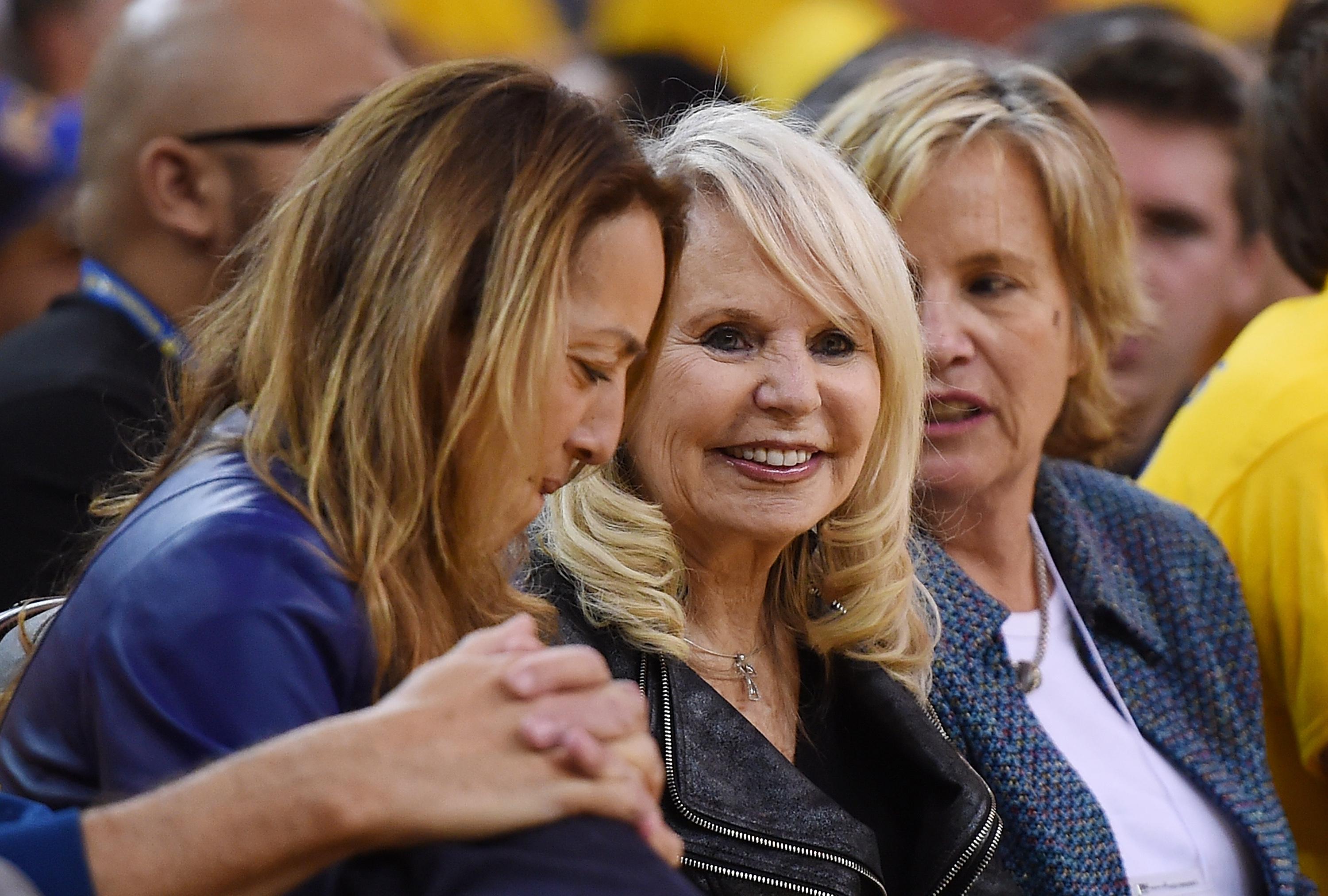Hours after Donald Sterling was banned from the NBA for life, his estranged wife Rochelle attended the Los Angeles Clippers’ Game 5 victory over Golden State. Mrs. Sterling had asked Doc Rivers if it would be OK for her to show up at the Staples Center, and the Clippers coach gave his blessing. “It’s a tough one for Shelly, really,” Rivers said after the game. “She didn’t do anything wrong. … And you have compassion for her. … I talked to her today, and she’s been through as much as anyone as well. And so she just wanted—she asked if she could come, which I thought was a very nice gesture. And she just wanted the players to know that—she told me to tell ‘em that she loved ‘em. And so I thought, why not?”
In recent days, Rochelle Sterling has distanced herself from Donald, saying that she is not a racist and releasing a statement indicating that her “family is devastated by the racist comments made by my estranged husband.” (A few days ago, Rochelle told a TMZ cameraman that her husband is not a racist, but that doesn’t seem to be the line she’s going with now.) Much of the sympathy for Rochelle stems, no doubt, from the perception that she is the woman scorned—cheated on by Donald, and an innocent victim of his lechery and racism. In a mess with few sympathetic figures, this is an enticing narrative. It’s a shame that Rivers, the Clippers team, journalists, and fans have fallen for it.
Donald Sterling’s downfall began when he was caught on tape saying that he didn’t want his ladyfriend V. Stiviano to be seen with black people. (Rochelle Sterling recently sued Stiviano, a lawsuit Deadspin characterizes as baseless, a “wife lashing out at her husband’s gold-digging mistress for having successfully dug up gold.”) But the Clippers owner’s racism extends far beyond his private thoughts about Magic Johnson and Instagram. For anyone who cares to look, there is ample documented evidence that Donald Sterling sought to ban blacks and Latinos from renting units at his properties, with the Clippers owner accused of saying that “black tenants smell and attract vermin.” Court documents clearly show that Rochelle Sterling was his right-hand woman in this prolonged, systematic housing discrimination.
Earlier this week, the Los Angeles Times’ Nathan Fenno compiled some of Rochelle Sterling’s alleged transgressions. Those include:
- In one federal housing discrimination suit against the Sterlings, a man accused Rochelle of calling him a “black motherfucker” when he asked her to reduce his rent. As Fenno reports, that renter’s lawsuit was folded in to a $2.765 million settlement paid by the Sterlings in 2009, a condition of which was that the Sterlings admitted no wrongdoing.
- In a deposition in 2009, a property supervisor for the Sterlings said that Rochelle told her, “I can’t remodel my apartments the way that I want because Latinos are so filthy.” In a 2004 deposition, that same property supervisor (who had previously lost at trial after suing Donald Sterling for sexual harassment) alleged that Rochelle didn’t want children and “certain ethnic groups” in her family’s housing complexes: “She didn’t want—if they were playing in the hallway, if they were out hanging in front of the building, they didn’t fit the image.”
- In a separate housing discrimination lawsuit, a judge concluded that Rochelle Sterling had posed as a health inspector, with the plaintiffs alleging she did so “in order to gain access to tenants’ apartments and to harass and intimidate African-American and Latino tenants.” The judge said that the allegations were “troubling” but did not warrant an injunction against the Sterlings.
This does not strike me as a woman who, in Doc Rivers’ words, “didn’t do anything wrong.” To believe such a thing is to wave away a long trail of evidence, and to engage in the kind of magical thinking that doesn’t help anyone understand what the Sterlings have done and believe. The widely held notion that Rochelle is blameless shows that a huge number of people—both those directly affected by this chaos and rubberneckers gawking at it from the outside—don’t grasp that Donald Sterling’s pre-2014 actions are far more disturbing than anything he said on that recent audio tape. (For more on this, read my colleague Jamelle Bouie and listen to Bomani Jones.)
If Doc Rivers and the Clippers want to forgive Rochelle Sterling, then that’s their right—she did tell the players that she loved them, after all. But saying that she did nothing wrong is harmful and misleading. Embracing Rochelle Sterling means embracing her past behavior. How can anyone, in the NBA or elsewhere, do that with a clear conscience?
